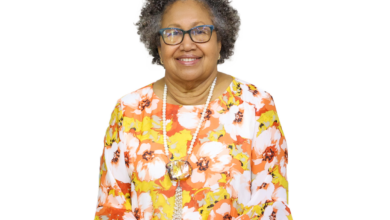IDB Representative Mr. Sergio Varas
Members of Staff of IDB
Members of Staff of the CARICOM Secretariat
Members of the Press
Ladies and Gentlemen
Let me take this opportunity on behalf on the Community and the Pan Caribbean Partnership (PANCAP) to express my deepest appreciation to the Inter-American Development Bank (IDB) for providing support to the HIV/AIDS Programme.
By the end of 2001, UNAIDS/WHO reported that 40 million people worldwide were infected with the HIV virus. That figure, I gather, has increased significantly since then. Moreover the majority of new infections are among young persons, with young women being particularly vulnerable. “About one-third of those currently living with HIV/AIDS are aged 15-24”.
Our Caribbean region has not been spared. The Caribbean is the second most affected region in the world behind sub-Saharan Africa, with an adult HIV prevalence rate of 2.2%. At the end of 2001, approximately 420,000 persons were infected with the HIV virus, including 20,000 children. In 2001, 60,000 persons were newly infected with the HIV virus, 30,000 persons died from the disease, including 5,000 children. This is a litany of woes and disaster for our countries.
In several countries HIV/AIDS has become the leading cause of death. Moreover, the economic impact is also devastating. A recent study conducted by CAREC and UWI Health Economic Unit estimates that by 2005, 4.0% and 6.4% of the GDP of Trinidad and Tobago and Jamaica could be lost due to HIV/AIDS.
Our Governments have not been sleeping. Governments across the region having grasped the seriousness of the impact of HIV/AIDS on the sustainable human development of Caribbean peoples have taken actions as exemplified by:
– The formation of the Caribbean Task Force on HIV/AIDS (1998) which led to the development of the Regional Strategic Plan (RSP) for HIV/AIDS 2000;
– The formation of the Pan Caribbean Partnership, February 2001 – The Nassau Declaration on Health 2001 – “The Health of the Region is the Wealth of the Region”, July 2001
– The participation of Caribbean Heads of Government at the United Nations General Assembly Special Session on HIV/AIDS (UNGASS) in 2001; and,
– The revision of the Regional Strategic Plan to a Regional Strategic Framework (RSF) in 2002.
The overall intention of the Framework is to provide a basis for reducing the spread and impact of HIV/AIDS in the Caribbean. The framework identifies areas for priority action at the regional level. These are focused on promoting a strengthened, effective and coordinated regional response to the epidemic, and supporting expanded multi-sectoral HIV/AIDS programmes at the national level.
PANCAP has mobilized resources to support its strategic plan from a variety of sources but there are several challenges to be faced:
· In spite of the increased resources to the region, the lack of capacity to implement national HIV/AIDS plans will have a negative impact on the regional efforts to prevent and control the epidemic. · The need to merge the PANCAP and EU-funded projects to ensure a more effective and efficient management administration of the regional HIV/AIDS project.
· Countries are demanding more support from PANCAP even before funds pledged have been disbursed to CARICOM/PANCAP.
· The implementation of the Global Fund to Fight AIDS (GFATM) and World Bank grants would require additional professional and support staff for the Project Coordinating Unit.
This grant from the IDB fills a small but essential gap in the PANCAP strategy framework. It allows the PANCAP network to incorporate into its work programme appropriate intervention models for use in the education process. Given the high rate of infection and death from HIV/AIDS among the youth, this project could not be more relevant and timely.
Many of our most beautiful and talented young people – both male and female – die from HIV/AIDS, and we need to raise the level of education about the issue. I don't know how many people read the death news here in Guyana; but I do, and I commend the society for placing the death news on television. This could help to advance the education process about HIV/AIDS.
The assistance provides for establishing educational and cultural tools for reaching youths, both in and out of schools, for utilizing the variety of multimedia technology and for sharing experiences. We are very pleased that among the collaborators in this venture are UNESCO, the Ministries of Education, NGOs and other Community Groups.
We once again thank the IDB for joining forces with the CARICOM Secretariat and PANCAP in this battle against HIV/AIDS. It is a battle that we cannot afford to lose.





